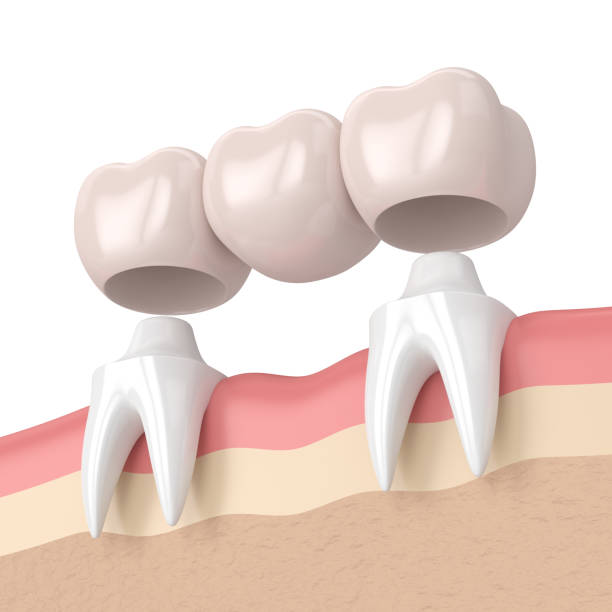Bridges
Sometimes if you are missing teeth and there's a gap, the dentist may discuss the option of a bridge with you.

The conventional bridge
The conventional bridge is often used when the teeth on either side would also benefit from a crown.
A conventional cantilever bridge
Is when just one tooth is needed to be prepared into the crown, usually a back tooth that is larger as this can offer more support for the replacement tooth in the bridge.
The benefits of a conventional bridge :
- It is a fixed replacement tooth that you don’t need to keep taking out. It can prove relatively stable.
- Cheaper than an implant or other fixed option.
- Can provide strength to the surrounding teeth included in the bridge if they are in a position to benefit from crowning.
The disadvantage of a conventional bridge:
- The replacement tooth is bonded onto the tooth or teeth next to it, and should anything bad happen to either tooth , the fates of the teeth on either side are also tied to it.
- Requires preparation, and removal of tooth tissue to accomodate on the surrounding (abutment) tooth.
- Not as strong for long spans of multiple teeth.
- More expensive than dentures.
Resin-bonded Bridges or Maryland Bridges
- Resin bonded bridges are bridges that can be placed with attachments to teeth that need little to no preparation with the drill.
- These bridges instead of being held in place by “crown” like abutments, are held in place by “wings” that are glued to the backs of the teeth on either side.
- These bridges require are not as strong as conventional bridges under high load.
| Bridges | Price |
|---|---|
| Bonded/Sticky/Maryland Bridge | £625 per unit. |
| Porcelain Bonded Bridge | £625 per unit. |